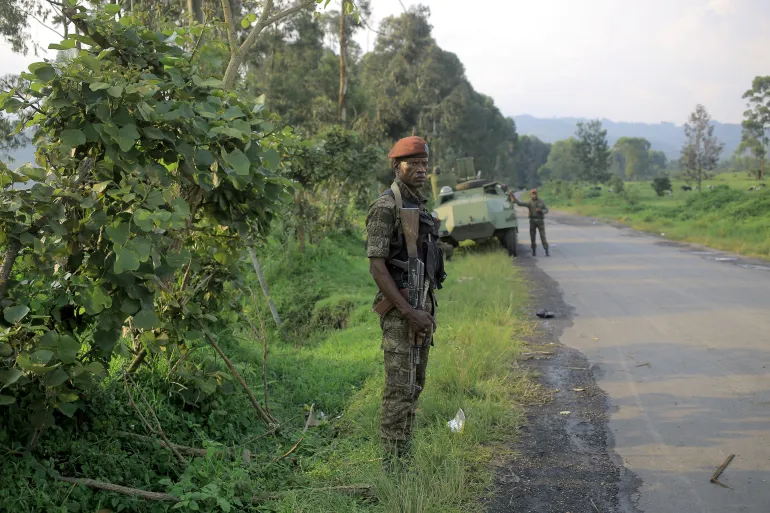In the wake of escalating conflict in the North Kivu Province in the eastern region of the Democratic Republic of the Congo (DRC), the UN Refugee Agency (UNHCR) and the UN Children’s Fund (UNICEF) have expressed profound apprehension over the increasingly worrying humanitarian situation. A surge in conflict involving armed factions and the state’s forces has precipitated the displacement of over 450,000 civilians within the past six weeks alone in the territories of Rutshuru and Masisi.
Individuals such as Jean Baptiste Munyanzinza, forced to seek refuge at the Bushagara camp located roughly 20 kilometres north of the provincial capital, encapsulate the severe impact of the crisis. Having been coerced into fleeing his home and the life he once knew due to the escalating violence, Munyanzinza finds himself amongst scores of others relegated to reliance on aid. However, despite access to food aid, Munyanzinza states, “Many people still don’t have shelter and emergency kits like us. We don’t want this life of begging. At home, we had fields, cattle, and we lived very well. The most important thing is to stop the war so that we can return home.”
The severity of the crisis has been exacerbated by its occurrence amidst the country’s gearing for elections and the significant obstructions to humanitarian assistance. Both UNHCR and UNICEF highlight the limitations imposed on aid delivery due to the inaccessibility of key routes. This obstruction has left the bulk of the nearly 7 million individuals affected by the conflict, largely isolated from urgently needed aid.
Recognising the struggle faced by displaced individuals, UNHCR has endeavoured to establish shelters for over 40,000 people in the vicinity of the provincial capital Goma in recent months. Evidencing their efforts, the distribution of survival kits entailing tarps, cooking pots, and blankets has been enacted. Despite these efforts, access to humanitarian assistance remains a pressing concern necessitating the urgent attention of the international community.
A further cause for alarm is the reported surge in human rights violations. According to reports accumulated by UNHCR and affiliated parties in October, over 3,000 instances of human rights violations were recorded. This figure exposes a worrying trend, being nearly double that of the previous month. Violations encompass severe instances of rape and arbitrary killings, alongside kidnappings, extortion, and property destruction.
Disturbingly, the instances of violations against children saw a precipitous increase from July to September 2023, with a 130 percent escalation to 2018 reported cases. This development is particularly alarming, given the already unacceptably high number of violations recorded within the first six months of the year.
Despite the critical need for humanitarian aid, the coordinated Humanitarian Response Plan for 2023, including the financial requirements of UNHCR and UNICEF, remains particularly underfunded. Estimated at USD 2.3 billion, the funding for the plan currently stands at merely 37 percent. This shortfall underscores the pressing need for international intervention and assistance to mitigate the burgeoning humanitarian crisis in DRC, whilst addressing the rampant violation of human rights.
Image Credit: Djaffar Sabiti/Reuters





